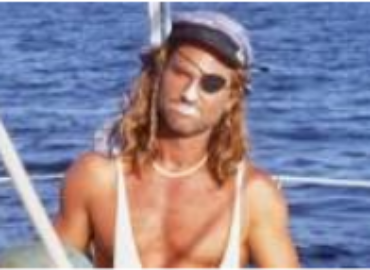OCD is Not Just Washing Your Hands A LOT…
I’ll admit I’m guilty of it – I talk about my penchant for origami toilet paper points as being “Sooo OCD”. I don’t like closed doors, or trash in bathroom trash cans, and if I’m left alone for too long I count the ceiling tiles or slats on the blinds or I read and reread subway posters or book jackets fanatically. I sweep the porch at odd hours, bringing order to the chaos in my life. Once I was having a rather important conversation with my lawyer and I was so distracted by the wall of crooked, framed photos in his office, I got up and adjusted one. It set off a domino effect, where one after the other, thirty photos fell off the wall. He just looked at me and said, “Marilyn you can stay. As long as you don’t touch anything.”
I might be overly fastidious about a few things, or even compulsive in my personal preferences, but I am not “OCD”, and I should know better. My best friend Kim Vincenty has spent the last 11 years studying everything she can get her hands on about OCD and its treatment and interventions, because her son Jack has OCD. Kim has started a support group for families who are touched by OCD and over the many long walks and talks we have had over the years, her challenges and frustrations have come to the fore. If you’d like to talk to Kim about OCD, leave her a message on her Facebook page.
What is OCD, Really?
Obsessive Compulsive Disorder is not just washing your hands twenty times. OCD is a disorder of the brain and behaviors. It causes severe anxiety and involves both obsessions and compulsions. It often steals the majority of a sufferer’s day as they become trapped by obsessive thoughts and rituals performed to alleviate anxiety (making sure the lights are off, counting steps to the door, showering for hours, tapping sequences, praying…). The more the compulsion is indulged, the more pronounced the rituals become.
In other words, if I had to check 50 times to make sure my TP points were straight, and woke in the night worrying that everyone should have toilet paper points – and what if they didn’t? And if I went to friends’ houses and had to look in their bathrooms before I could relax. And if I was someplace with unruly toilet paper, and I started imagining something bad was going to happen because of it – then I would have a disorder.
OCD and Addiction
I’ve done a bit of research myself, and The Journal of Anxiety Disorders estimates that over 25 percent of those who seek treatment for OCD also meet the criteria for a substance use disorder. Individuals who experience OCD symptoms for the first time in childhood or adolescence are more likely to develop a drug or alcohol problem, often as a way to cope with overwhelming anxiety and fear. Kim says, “Often the easiest band-aid for OCD, a wound that is difficult to heal, is self medication. This is why there is such a high degree of comorbid disorder, OCD and addiction.”
Kim is on the board of the OCD Foundation of Jacksonville (IOCDF), and they are having a conference next Friday, October 16th, called OCD and Anxiety Disorders : What Professionals, Educators and Parents Need to Know . To learn more about the conference or to sign up for this important event, up please click the link.
From now on, I’m going to think before I bandy about the now popular, and oft misused term “OCD”. And I’m going to shut up and let Kim have the final word:



